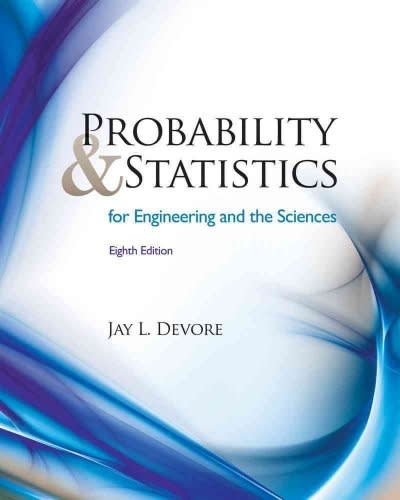A function g(x) is convex if the chord connecting any two points on the functions graph lies
Question:
A function g(x) is convex if the chord connecting any two points on the function’s graph lies above the graph. When g(x) is differentiable, an equivalent condition is that for every x, the tangent line at x lies entirely on or below the graph. (See the figure below.) How does compare to E(g(X))? [Hint: The equation of the tangent line at is y 5 g(m) 1 gr(m) . Use the condition # x 5 m (x 2 m)
g(m) 5 g(E(X))
mR sR R 5 v/I mI 5 20 sI 5 .5 aX 1 b g( 1x # )
g(X) < g(m) 1 gr
(m) # (X 2 m)
m m s l 5 10 U #
l F(x) 5 P(X # x) X # x of convexity, substitute X for x, and take expected values.
[Note: Unless g(x) is linear, the resulting inequality (usually called Jensen’s inequality) is strict ( rather than ); it is valid for both continuous and discrete rv’s.]
Step by Step Answer:

Probability And Statistics For Engineering And The Sciences
ISBN: 9781133169345
8th Edition
Authors: Jay L Devore, Roger Ellsbury





